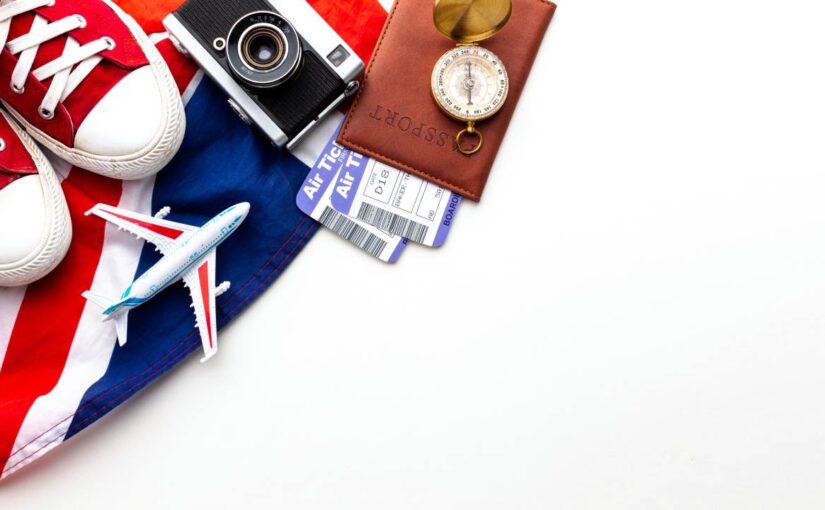
9 Things a U.S. Immigration Lawyer in Edmonton Can Explain About Visa Denials
What Happens When a Visa Gets Denied?
A visa denial isn’t always the end of the road, but it can feel like a setback. Whether it’s a visitor visa, student permit, or work-based application, many individuals walk away from the process confused and discouraged. The U.S. immigration system is renowned for its intricate requirements and frequently changing policies, and rejection notices often lack a comprehensive explanation.
That’s where speaking with a U.S. immigration lawyer in Edmonton becomes helpful. With experience handling these cases, they can interpret refusal reasons, explain next steps, and clarify whether a re-application, appeal, or a new strategy makes more sense.
Why Understanding the Denial Matters
Not all visa denials are permanent. In fact, many are tied to errors that could be corrected. But if you don’t understand why the application was refused in the first place, it’s easy to repeat the same mistake. Some people reapply too soon, while others assume they’re permanently ineligible.
An informed breakdown of the refusal helps applicants make better decisions, avoid unnecessary costs, and reduce wait times for future submissions.
How a U.S. Immigration Lawyer in Edmonton Helps Clarify the Process
Below are nine specific things that a lawyer can explain after a visa denial—details that aren’t always clear from the official notice.
1. Application Errors That Trigger Automatic Denials
Simple errors—like incomplete fields, conflicting details, or missing signatures—are some of the most common causes of denial. A lawyer can identify these easily and advise on how to fix them in future applications.
2. Supporting Documents That Didn’t Align With Your Case
You may have submitted documents, but they may not have matched the requirements for that specific visa category. A U.S. immigration lawyer in Edmonton can show you what was lacking or how evidence could be better organized.
3. Issues Related to Prior Immigration History
Previous overstays, entry refusals, or prior denials—even from other countries—can influence a U.S. visa decision. Lawyers can explain how past events show up in the system and what impact they may have.
4. Concerns About Returning to Your Home Country
Temporary visa applicants are expected to demonstrate intent to return. If the officer wasn’t convinced, this could have led to a denial. A lawyer can help clarify what “strong ties” mean in your context and how to document them.
5. Financial Documents That Raised Doubts
Whether you applied independently or with a sponsor, financial capacity is always reviewed. A U.S. immigration lawyer in Edmonton can review what you submitted and how it was interpreted.
6. Interview Responses That Didn’t Match the File
Sometimes, what you say during the consular interview matters more than what’s on paper. Lawyers can identify inconsistencies between your answers and documents, then prepare you more thoroughly for the next round.
7. Security or Background-Check Flags
Not all refusals are due to documents or interviews. Some arise from red flags in security databases, even if the applicant has no known criminal history. A lawyer can request further clarity or explore eligibility for waivers if applicable.
8. Unclear Purpose or Misaligned Visa Category
Choosing the wrong visa type—say, applying for a tourist visa when you intend to visit family long-term—can lead to refusals. Lawyers can guide you in selecting a category that truly fits your plans.
9. Whether You Should Appeal, Reapply, or Wait
Finally, not every visa denial should be followed by a quick re-application. A U.S. immigration lawyer in Edmonton can advise whether it’s better to challenge the decision, refile with stronger materials, or wait until circumstances change.
Don’t Reapply Without Clarity
Reacting to a visa denial without fully understanding the cause can lead to more frustration. The refusal notice often doesn’t tell the full story. Before you file another application or give up altogether, take time to examine the outcome with someone trained in U.S. immigration matters.
At American Visa, individuals are given time to understand their immigration history, assess their current eligibility, and chart a path that aligns with their goals. A single denial doesn’t need to derail the bigger picture. With the right strategy, progress is still possible.
Popular Posts
- 7 Key Tips for Edmonton Tech Workers to Speed Up the L1B Visa Process with Blanket Petitions
- Making the L1B Visa Process Easier for Edmonton-Based Professionals
- How 7 Required Documents Shape Parent visa immigration
- Canada’s Population Growth Slows as Immigration Policies Tighten
- 10 Documents Required for the L1B Visa Process in Edmonton
